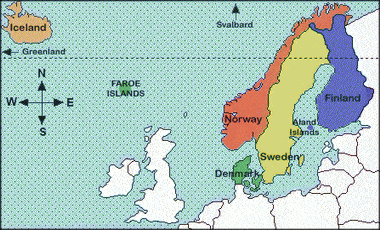RE-POST/Fixed Media & Links
(Originally Posted In April of 2016, then in 2020)
PARTIAL TRANSCRIPT
You describe yourself as agnostic atheist. What does that mean?
That means I don’t know. That’s all it means. I don’t […] I’m not arrogant enough to say that I am an atheist and I’m not arrogant enough to know that there is something out there, so I am happy to say that I don’t know.
And I think about it, I often say that I am an atheist in the daytime and terrified at night. And you wake up and you’re like […] ah, is this all there is? And then you wake up in the morning and it kind of goes away. […] I am in in the I don’t know party, which technically that might be agnostic or atheist. But I don’t know. I leave that to whatever happens, it’s the big practical joke. We’ll never know. Nobody comes back to tell what.
In his book, How To Be Right: The Art of Being Persuasively Correct (p.96), and in an article in NATIONAL REVIEW, as well as intimating the same in the above video, Greg Gutfeld said this:
This is important because it removes the sweaty veneer of ideological excess. While I love it when I’m certain about something, I realize those are rare moments in life. You cannot be certain about all things. As an agnostic, I do not call myself an atheist, because, to put it simply, “I don’t know.” For all I know there is a god, and it’s some dude in Jersey named Ned. True, I’ve pretty much discounted this theory — Ned has bad skin and a Beatle-do, qualities rarely associated with the divine. But the point is: I can’t be 100 percent sure. So I punt.
I will comment on his “agnosticism” in a bit, but first…
While I have enjoyed his contributions to Conservatarian thinking and much needed humor, I have to say this is one of the worse positions I have seen him take. Logically that is. And let me be clear… I am NOT saying this because he merely rejects “God” [read here Ned], but that he anthropomorphizes the big “G” — the classic theistic understanding of God.
Making wise decisions always depends on various factors even though it does not provide us with 100% guarantee. In this case, what is missing is a correct definition of God. So since we are primarily dealing with evidences garnered from history, science, philosophy, fulfilled prophecy, and the like… there is no silver bullet. Nothing is assured 100%
BUT…
There is a way to approach this as almost all person’s do (in their personal life or professional life). Just like a case in court so-to is the cumulative gathering through reason and logic evidences in a way that a strong case for God is made.
Even in a court situation, a case is made that sways a jury one way in order to not make a life-or-death ruling (in the case of a 1st degree murder trial), but to make a choice “beyond reasonable doubt.” Here is a great comment in an article on STAND TO REASON’S site:
The jury is asked if the evidence shows that the defendant is probably guilty.
It is to the evidence introduced in this trial, and to it alone, that you are to look for that proof.
The standard of probability is not “100% certainly guilty”; it is “guilty beyond a reasonable doubt.
A reasonable doubt as to the guilt of the defendant may arise from the evidence, conflict in the evidence, or the lack of evidence.
If you have a reasonable doubt, you should find the defendant not guilty. If you have no reasonable doubt, you should find the defendant guilty.
Evidence beyond a reasonable doubt. That’s it. That’s all. Nothing about faith.
In life, not just in the jury box, we are forced to make decisions with incomplete information, but we are never forced to go beyond evidence.
Andy Banister explains this concept with a walk through the woods:
It is easy to see that Mr. Gutfeld is creating an impossible plateau for one to reach that no field of study, whether the sciences or law (except maybe mathematics), can ever dream to attain. Perfection ~ something Greg should be familiar with rejecting and warning others about. That is, Utopian ideals and goals. In making this impossible 100% claim he defines God in such a way that evidence for His existence — not Ned, but the real Creator of the space-time-continuum — is defined out of existence. Greg essentially presupposes that God out of existence.
To wit, I will turn my attention to Greg Gutfeld’s “agnosticism.” He has repeatedly said “I don’t know.” In the video at the top of this post he says right after the “practical joke” comment “that we will never know.” That is not an agnostic position. Professor Budziszewski explains:
“To say that we cannot know anything about God is to say something about God; it is to say that if there is a God, he is unknowable. But in that case, he is not entirely unknowable, for the agnostic certainly thinks that we can know one thing about him: That nothing else can be known about him. Unfortunately, the position that we can know exactly one thing about God – his unknowability in all respects except this – is equally unsupportable, for why should this one thing be an exception? How could we know that any possible God would be of such a nature that nothing else could be known about him? On what basis could we rule out his knowability in all other respects but this one? The very attempt to justify the claim confutes it, for the agnostic would have to know a great many things about God in order to know he that couldn’t know anything else about him.”
J. Budziszewski, found in Norman Geisler & Paul Hoffman, eds., Why I Am a Christian: Leading Thinkers Explain Why They Believe, revised ed. (Grand Rapids, MI: Baker Books, 2001), 58
In other words… Gutfeld is showing arrogance by demanding 100% proof (that no jury demands), and by excluding God by defining Him in a way as to rig the outcome. As much as I respect him and his wonderful work… his position here is very childish. Not a position I would expect him to take… but ideology [his atheism] does tend to blind. And arrogantly so.
Sometimes the smartest skeptics give up what they wrongly view as faith for the most “childlike” reasons. For instance, Lewis Wolpert, who has too many letters after his name and is a very accomplished and respected developmental biologist, explained why he rejects God:
I stopped believing in God when I was 15 or 16 because he didn’t give me what I asked for. (Lewis Wolpert, “The Hard Cell,” Third Way, March 2007, p. 16)
During an interview, he also stated: “I used to pray but I gave it up because when I asked God to help me find my cricket bat, he didn’t help.”
When asked by Justin Brieley (Unbelievable show episode, “What Does Science Tell Us About God?”): “Right, and that was enough for you to prove that God did not exist.”
He replied: “Well, yes. I just gave it up completely.”
(See page 15 of MIDWEST CHRISTIAN OUTREACH JOURNAL)
While one would expect a meaty explanation that reasonable people would think about and come to a conclusion on… his reasoning is commensurate of a child’s reasons. Another well known skeptic, Bart Ehrman, doesn’t reject God because he found textual evidence against the Christian faith. He rejects God because there is suffering in the world:
“If there is an all-powerful and loving God in this world, why is there so much excruciating pain and unspeakable suffering?” He [Ehrman] says this “led me to question my faith when I was older. Ultimately, it was the reason I lost my faith”
Bart’s way of dealing with this is basically the classical argument against God:
Premise 1: God is all-good (omnibenevolent)
Premise 2: God is all-powerful (omnipotent)
Premise 3: Suffering and evil exist
Conclusion: An all-good, all-powerful God could not exist since there is so much suffering and evil in the world. If he did, he would eradicate this evil.
Charles Darwin as well rejected God not based on evidence, but for theological reasoning:
- That there is much suffering in the world no one disputes… A being so powerful and so full of knowledge as a God who could create the universe is to our finite minds omnipotent and omniscient. It revolts our understanding to suppose that his benevolence is not unbounded, for what advantage can there be in the sufferings of millions of lower animals throughout almost endless time? This very old argument from the existence of suffering against the existence of an intelligent First Cause seems to me a strong one; and the abundant presence of suffering agrees well with the view that all organic beings have been developed through variation and natural selection. — Charles Darwin, The Works of Charles Darwin, Volume 29 (New York, NY: NYU Press, 2010), 121-122.)
Darwin was using theological presuppositions to drive his research, here are the precepts:
I have argued that, in the first edition of the Origin, Darwin drew upon at least the following positiva theological claims in his case for descent with modification (and against special creation):
- Human begins are not justfied in believing that God creates in ways analogous to the intellectual powers of the human mind.
- A God who is free to create as He wishes would create new biological limbs de novo rather than from a common pattern.
- A respectable deity would create biological structures in accord with a human conception of the ‘simplest mode’ to accomplish the functions of these structures.
- God would only create the minimum structure required for a given part’s function.
- God does not provide false empirical information about the origins of organisms.
- God impressed the laws of nature on matter.
- God directly created the first ‘primordial’ life.
- God did not perform miracles within organic history subsequent to the creation of the first life.
- A ‘distant’ God is not morally culpable for natural pain and suffering.
- The God of special creation, who allegedly performed miracles in organic history, is not plausible given the presence of natural pain and suffering.
This seems like a problem, but in fact, many atheists have abandoned this tactic. Why… through the work primarily of Alvin Plantinga. Here, Dr. Ronald Nash formulates WHY this syllogism is no longer a serious threat in philosophy:
Demonstrating the Consistency of the Theistic Set
After our brief detour into the differences between a theodicy and a defense, a short summary may help us get back on track. We have seen that the atheologian’s claim that the theistic set is self-contradictory remains nothing more than wishful thinking because of the atheologian’s failure to produce the missing premise required to show that the set is explicitly contradictory. Rather than rest on our laurels and live with the possibility that some atheologian might discover the missing proposition some time in the future, we have decided to see if we cannot beat the atheologian to the punch and actually demonstrate that the theistic set is consistent. Once done, this will eliminate any possibility of theism’s being shown to be logically inconsistent because of the existence of evil in the world. The method of demonstrating consistency requires that we add a premise (or premises) to the original set that logically entails the other proposition, which, in our case, is “The world contains evil.” In order to do the job, it is not necessary that our new premise be true or even that it be believed to be true. All that is necessary is that it be logically possible.
Consider, then, the following argument:
An omnipotent, omniscient, omnibenevolent God created the world.
God creates a world containing evil and has a good reason for doing so.
Therefore, the world contains evil.
Numbers 1 and 2 taken together do, of course, entail 3. Therefore, the propositions from our original theistic set that now make up 1 are logically consistent with the existence of evil. The only relevant question regarding 2 is whether it is possibly true. Obviously it is since it is not logically false. Therefore, the theistic set is logically consistent from which follows the impossibility of anyone’s ever demonstrating that it is not.
Ronald Nash, Faith & Reason: Searching for a Rational Faith (Grand Rapids, MI: Zondervan Publishing House, 1988), 189.
C.S. Lewis as well argues against this “evil universe” argument:
My argument against God was that the universe seemed so cruel and unjust. But how had I got this idea of just and unjust? A man does not call a line crooked unless he has some idea of a straight line. What was I comparing this universe with when I called it unjust? If the whole show was bad and senseless from A to Z, so to speak, why did I, who was supposed to be part of the show, find myself in such violent reaction against it? A man feels wet when he falls into water, because man is not a water animal: a fish would not feel wet. Of course I could have given up my idea of justice by saying it was nothing but a private idea of my own. But if I did that, then my argument against God collapsed too–for the argument depended on saying that the world was really unjust, not simply that it did not happen to please my fancies. Thus in the very act of trying to prove that God did not exist–in other words, that the whole of reality was senseless -I found I was forced to assume that one part of reality–namely my idea of justice–was full of sense. Consequently atheism turns out to be too simple. If the whole universe has no meaning, we should never have found out that it has no meaning: just as, if there were no light in the universe and therefore no creatures with eyes, we should never know it was dark. Dark would be a word without meaning.
C.S. Lewis, Mere Christianity (San Francisco, CA: Harper San Francisco, 1952), 38-39.
So again, Bart’s rejection is dealt with handily, and shows his rejection is merely emotive in nature… devoid of any real substance. Similar to Greg Gutfeld’s position, his rejection is merely emotive in his reasoning. He is not worries about “evidence” per-se, but rather worried about some cosmic killjoy that may have a word with in regards to past or future hedonistic ventures. So his hiding arrogantly behind “I don’t know” is his crutch.
I have some really good books I can recommend to the person seeking good, well-thought-out, reasonable arguments detailing various forms of evidence for “faith”~
Post-Script,
May I also note quickly how a believer views faith as opposed to the faith Greg surely thinks is blind (and granted, some Christians are heppy with their “blindedness”):
Certain words can mean very different things to different people. For instance, if I say to an atheist, “I have faith in God,” the atheist assumes I mean that my belief in God has nothing to do with evidence. But this isn’t what I mean by faith at all. When I say that I have faith in God, I mean that I place my trust in God based on what I know about him.
William A. Dembski and Michael R. Licona, Evidence for God: 50 Arguments for Faith from the Bible, History, Philosophy, and Science (Grand Rapids, MI: Baker Books, 2010), 38.
AND, unless we forget the bottom line in this discussion through hubris, we should know that which we reject through feigned ignorance:














